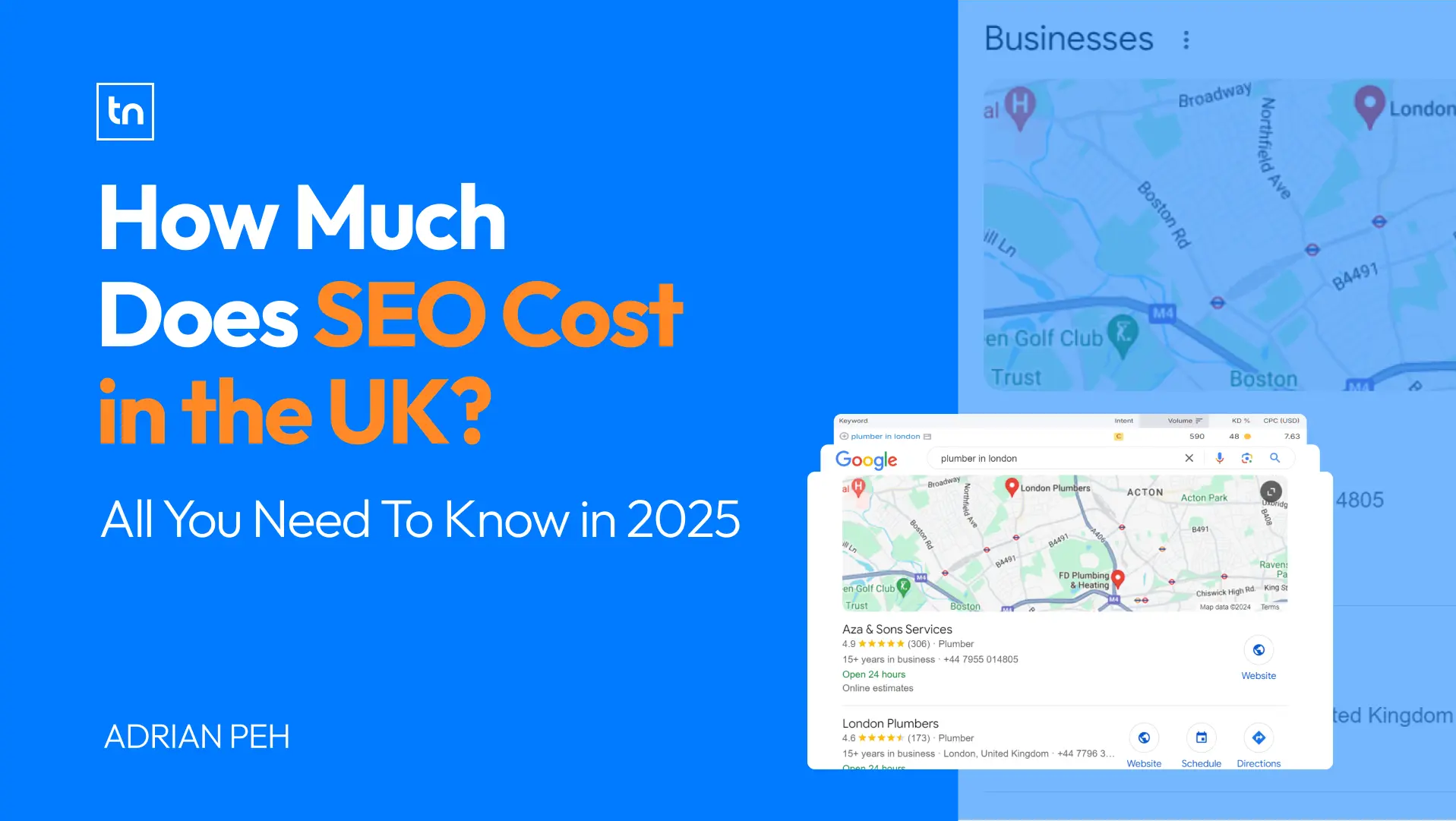
Table of Contents
If you run a law firm in the UK and want more clients from your area, getting found on Google should be a top priority. And it all starts with keyword research.
Whether you’re a family solicitor in London or a conveyancer in Manchester, the words people type into search engines matter. Use the right ones, and your website could become your biggest source of new clients – this is the key to local SEO. Use the wrong ones—or none at all—and you’ll likely be invisible online.
This guide will walk you through how to do local keyword research for solicitors, even if you’re not tech-savvy. It’s designed to be simple, effective, and focused on local visibility.
Key Takeaways:
1. Speak Your Client’s Language – Avoid legal jargon. Use the everyday terms your clients type into Google—like “family lawyer London” or “no win no fee solicitor Manchester.”
2. Add Local Modifiers to Every Keyword – Local SEO depends on location relevance. Always include city, borough, or neighbourhood names in your keywords to attract nearby clients.
3. Group Keywords by Service and Intent – Create dedicated pages for each legal service—divorce, conveyancing, wills—and match them with keywords that show buyer intent, not just interest.
4. Use Free Tools to Discover Real Searches – Google Autocomplete, People Also Ask, and Keyword Planner reveal exactly what people are searching for—no expensive tools needed.
5. Optimise Pages and Track Performance Over Time – Map keywords to specific pages, monitor traffic in Google Search Console, and refine your content regularly to keep improving your rankings.
What Is Keyword Research and Why It Matters for Solicitors?
Keyword research is the process of finding out what people are searching for online—so you can show up when they do.
For solicitors, it’s how you get in front of potential clients who are actively looking for your services. Instead of waiting for referrals, you’re now showing up when someone searches “divorce solicitor Manchester” or “will writing service near me.”
This is what local SEO is all about—appearing in search results when someone nearby needs legal help.
Understand What Your Clients Are Actually Searching For
Many legal websites make the mistake of using complex legal terms. But here’s the truth: most people don’t.
Your clients aren’t typing “residential conveyancing services.” They’re typing:
- “house buying solicitor London”
- “transfer property to spouse UK”
- “Manchester divorce lawyer near me”
The key is to think like your client, not like a solicitor. Use plain English and focus on what problems they want solved. Learn more about SEO for Solicitors here.

Start with a Seed List of Core Services
Before using any tools, start with a pen and paper (or a spreadsheet). Write down your core services, like:
- Divorce and family law
- Personal injury
- Wills and probate
- Employment disputes
- Conveyancing (buying/selling property)
- Immigration services
- Criminal defence
These become your seed keywords—the foundation for further research.
Use Google’s Free Tools to Find What People Search
You don’t need expensive software to find real keywords.
Start with these simple (and free) tools:
- Google Autocomplete: Start typing “conveyancing solicitor Man…” and see what Google suggests.
- People Also Ask: These show common related questions people ask.
- Google Search Console (if your site is set up): Shows what terms you already rank for.
- Google Keyword Planner: Free inside Google Ads—great for checking how many people search for your services each month.
For example, typing “will writing” into Keyword Planner might show:
- “will solicitor near me” (1,300 searches/month)
- “will writing service London” (590 searches/month)
- “how to make a will UK” (2,900 searches/month)
That’s valuable insight.

Do you want a Free SEO Audit for your website?
Look for Local Modifiers to Add Location Relevance
Local SEO depends on being geographically relevant.
You’re not trying to rank for “divorce lawyer” nationally—you want to rank for “divorce solicitor Manchester” or “child custody lawyer Birmingham.”
Add location terms to your keywords, such as:
- city: “London”, “Leeds”, “Cardiff”
- boroughs or areas: “Camden”, “Didsbury”, “Southwark”
- regional terms: “North London solicitor”, “West Midlands lawyer”
Tip: Don’t just add the location at the end. Mix it up:
- “Birmingham conveyancing solicitor”
- “solicitor for wills in Glasgow”
- “Leeds family law firm”
Use Keyword Clusters to Cover Topics, Not Just Phrases
Google now ranks topics, not just exact keywords. So you want each page to cover a cluster of related terms, not just one phrase.
Example cluster for a Personal Injury page in Manchester:
- personal injury solicitor Manchester
- car accident claim
- no win no fee solicitor
- workplace injury lawyer
- how to claim compensation UK
Write naturally and cover these topics throughout the page—headings, FAQs, paragraphs. This makes your content more useful and helps you rank for multiple variations.
Balance Search Volume and Buyer Intent
You’ll come across keywords with high search volume, like “how to get a divorce.” But high volume doesn’t always mean high value.
You want to prioritise keywords with buyer intent—phrases people search when they’re ready to hire, like:
- “divorce solicitor near me”
- “employment lawyer London no win no fee”
- “make a will UK cost”
These terms show that the searcher wants a service, not just information.
Aim for a mix of:
- High-intent keywords (ready to hire)
- Informational keywords (build trust with helpful content)
Spy on Your Competitors (Ethically)
Want to know what’s working for other law firms?
Type your service into Google—e.g. “family solicitor Bristol”—and look at the top-ranking firms. Analyse:
- What keywords are in their page titles and headings?
- What services do they promote on each page?
- What blog topics are they writing about?
You can also use free tools like:
- Ubersuggest (shows competitor keywords)
- AnswerThePublic (shows common questions around a topic)
This gives you a competitive edge—without copying, you can see what Google is rewarding and build on it.
Map Keywords to Pages on Your Site
Once you’ve gathered your keywords, don’t just dump them all onto your homepage.
Create individual service pages for each area:
- /divorce-solicitor-london/
- /personal-injury-manchester/
- /will-writing-bristol/
Each page should target a specific cluster of keywords related to that service and location. This makes it easier for Google to understand—and easier for clients to find the exact service they need.
Monitor Performance and Adjust Over Time
Local SEO isn’t a one-time job. Search trends change. Competitors update their sites. Google tweaks its algorithm.
Set up Google Search Console to monitor:
- What search terms bring traffic
- Which pages are underperforming
- What positions you rank in
Keep improving your pages based on this data. Add FAQs, rewrite weak headlines, or create blog posts around questions your clients often ask.
Conclusion: Make Your Law Firm Easy to Find
Keyword research isn’t about gaming Google—it’s about understanding how people search and speaking their language.
When you choose the right keywords and pair them with useful, location-specific content, your website becomes more than a digital brochure—it becomes a client magnet.
Whether you’re a solicitor in London, a legal advisor in Manchester, or a small firm in rural Wales, this process will help you get found more often by the people who need you most.
FAQs
The best local keywords for solicitors combine your service and your location. For example:
– “divorce solicitor London”
– “conveyancing solicitor Manchester”
– “will writing service Birmingham”
These terms reflect what real clients type into Google when they’re looking for legal help nearby.
You can use free tools like Google Autocomplete, Google Keyword Planner, and People Also Ask to see what locals are searching. Simply type your service plus your city—like “personal injury solicitor Leeds”—and let Google show you suggestions and questions people commonly ask.
Yes. Each service (like family law, personal injury, or probate) should have its own dedicated page optimised for related keyword clusters. This makes it easier for search engines to understand your site and helps you rank for multiple relevant terms.
National SEO targets broad, country-wide searches like “UK employment lawyer.” Local SEO focuses on ranking for location-based searches like “employment lawyer in Glasgow.” For most solicitors, local SEO brings better-qualified leads and higher conversion rates.
Review your keyword performance every few months using tools like Google Search Console. If search trends shift, or if you add new services or expand to new locations, update your pages and keywords to reflect those changes.








